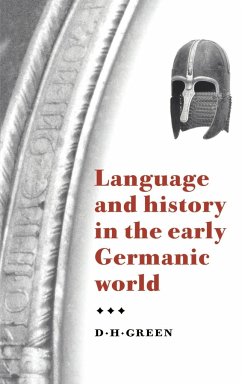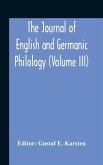This book offers a distinctive and accessible approach to the earliest encounters of the Germanic tribes of Northern Europe with classical antiquity and with early Christianity. It brings together linguistic evidence from across Europe and dating from before Caesar to about 900 AD, to shed light on important aspects of Germanic culture. It shows how semantics and loanword studies, often avoided by non-specialists, can provide important clues for historians and archaeologists of the period. Likewise, it demonstrates that philologists and linguists ignore historical evidence at their peril.
Table of contents:
Introduction; Part I. The Germanic World: 1. Religion; 2. Law; 3. Kinship; 4. Warfare; 5. People and army; 6. Lordship; 7. Kingship; Part II. Contact with the Non-Germanic World: 8. Contact with the Celts; 9. The migration of the Goths; 10. Germanic loanwords in Latin; 11. Latin loanwords in Germanic; 12. Trade and warfare with the Romans; 13. Names of the days of the week; 14. The vocabulary of writing; Part III. Contact with Christianity: 15. Problems of Christianisation; 16. The influence of provincial Roman Christianity; 17. The influence of Gothic; 18. The influence of the Merovingian Franks; 19. The influence of the Anglo-Saxons; 20. Contrasts in Christian vocabulary; 21. The vocabulary of ethics and fate; Bibliography; Index of words.
This book uses linguistic evidence to provide a distinctive and accessible approach to the culture of the Germanic tribes during the Roman empire and its aftermath. It argues that attention to language can shed light on problems in history, and also that linguists must take historical evidence seriously.
This book presents linguistic evidence for many aspects of pre-Christian and early medieval European culture.
Table of contents:
Introduction; Part I. The Germanic World: 1. Religion; 2. Law; 3. Kinship; 4. Warfare; 5. People and army; 6. Lordship; 7. Kingship; Part II. Contact with the Non-Germanic World: 8. Contact with the Celts; 9. The migration of the Goths; 10. Germanic loanwords in Latin; 11. Latin loanwords in Germanic; 12. Trade and warfare with the Romans; 13. Names of the days of the week; 14. The vocabulary of writing; Part III. Contact with Christianity: 15. Problems of Christianisation; 16. The influence of provincial Roman Christianity; 17. The influence of Gothic; 18. The influence of the Merovingian Franks; 19. The influence of the Anglo-Saxons; 20. Contrasts in Christian vocabulary; 21. The vocabulary of ethics and fate; Bibliography; Index of words.
This book uses linguistic evidence to provide a distinctive and accessible approach to the culture of the Germanic tribes during the Roman empire and its aftermath. It argues that attention to language can shed light on problems in history, and also that linguists must take historical evidence seriously.
This book presents linguistic evidence for many aspects of pre-Christian and early medieval European culture.








